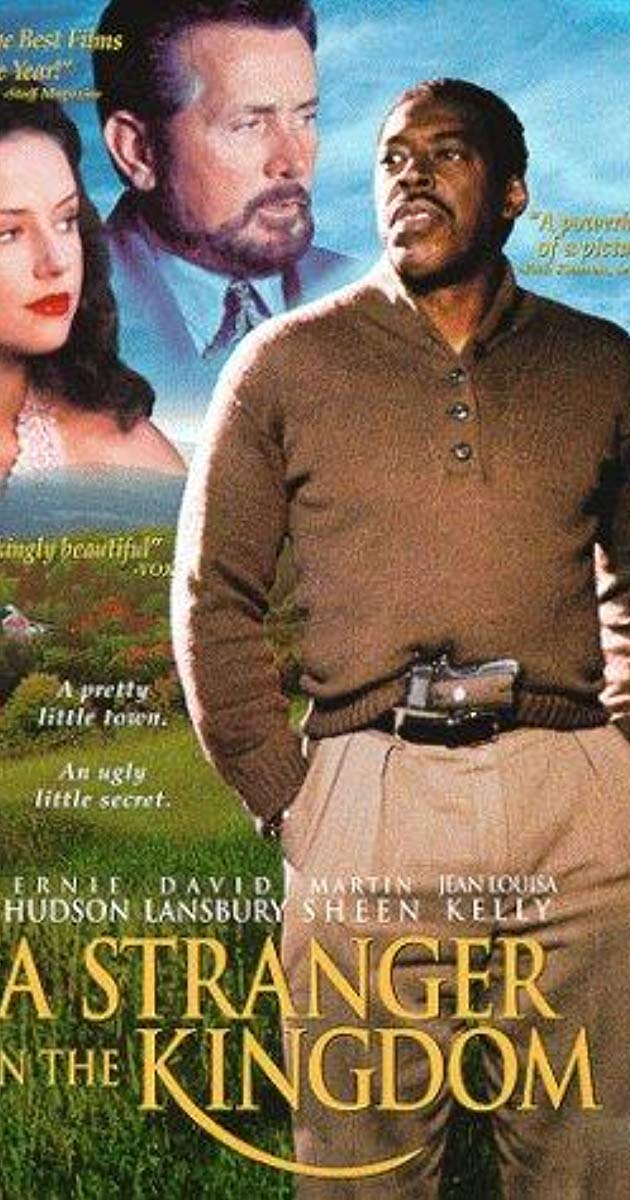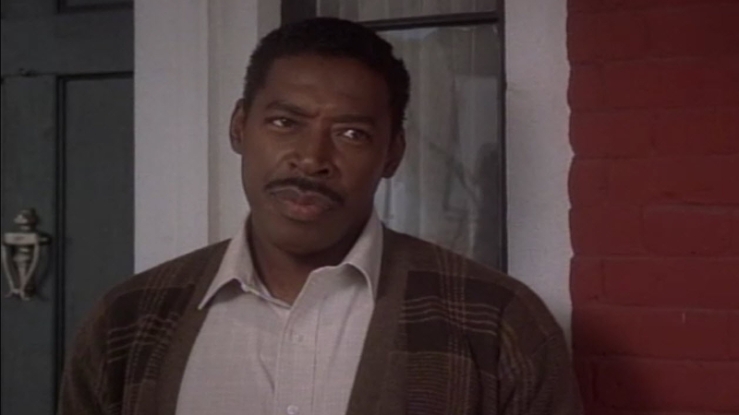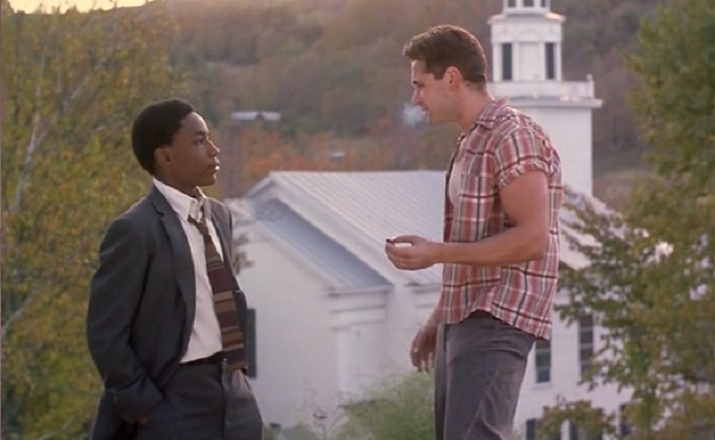
Directed by: Jay Craven & Don Bredes
A Stranger in the Kingdom is a 1999 film directed by Vermont writer/director Jay Craven based on a 1989 novel by Vermont author Howard Frank Mosher and is an adaptation of a real event which happened in region of the state of Vermont known as the Northeast Kingdom in the 1950s. The Northeast Kingdom is located, well, in the northeast corner of the state and to this day is one of least developed part of Vermont. The film describes it as a place where “there is no law”. The basic story is in the 1950s a small town hires a new church minster. The town is shocked when the black Rev. Walter Andrews, played by Ernie Hudson, moves with his son, Nathan, to northeastern Vermont from Boston for the job. But he is far more shocked when the former army chaplain is accused of adultery and murder.
This story of the black minster in an extremely white town is actually a side-story which dovetails with story of a young Quebecois women. A couple of local losers trick a young Quebecois women, by the name of Claire LaRiviere, into traveling to Vermont under the rue that there is young man in the village who would like to marry her. In actually there’s an old man who just wants her to do all the house work for him.

There is an element of stranger in a strange land narrative to the story as Andrews and his son have to get use to a different, more rural, kind of living. But fundamentally A Stranger in the Kingdom is based on a true story of racism in an environment of hostile whiteness. Now hostile whiteness and racism are not the same thing but they are related. Hostile whiteness is a display of displeasure toward people of color not just their absence, though their absence is can also reference a hostility. Immediately after arriving at the village the Andrews are greeted with racist slurs of “monkey paw” and other verbal indignities. So even though the Andrews are technically free to be in the village and there are no structural institutions or authority denying the pastor from taking up his job, the Andrews are constantly harassed and made to appear as spectacles to be gawk at. If you ever wonder about liberal (or conservative) indifference to racism there is no better example then the villagers reaction to this harassment. The villager do nothing.
A Stranger in the Kingdom tries to invent history and diversity and thus make the story of this lily white area more complex. One way it does it is by the introduction of Pliny Templton, a fake former slave who moves to Vermont and starts its first academy. The town, however, just can not stop themselves from excising good old racist colonial grave robbing and has his skeleton in a barrel or something. Not sure why the writer or the film needed to do this when they have the actual real Lemuel Haynes, who fought in the American War of Independence, was the first black man in the United States to be ordained as a minister, and worked in Vermont for many years. Personally I think Haynes story; being born of a white mother of some status and an African/African-American father in 1753, being sold as indentured servant, fighting in the war, becoming the first black minster, marrying a white school teacher, raising 10 children in upper New York state/central Vermont, is a far more interesting story. Or maybe just include some Indigenous Vermonters and their history in the region. The film also presents an underlying meta-narrative on the freedom of women. Not only do the women characters not let the men run around they are simply smarter. Except maybe for Claire. She moves from one home to another unsure of what she wants and unable for some reason to return to Quebec. The film really does a disservice to her character. Part of this might be that it makes he appear to much older and treats her like an adult when she she’s probably around the same age as the Minister’s son Nathan, who everyone treats as a boy.

I am going to spoil the ending here. It’s been out for some time guys, get over it. While watching this film I kept thinking of other films. Specifically the 1959 film The World, The Flesh, And The Devil and 1963’s Free, White and 21. Even though she is actually 17, which makes the actions of most the men in the film even more gross, the attitude behind these films and the issues they discuss fits with A Stranger in a Kingdom. Because while Walter Andrew is being run through the ringer of the Kingdom’s kangaroo court and while every man except Walter tries repeatedly to get into this young girls dress none of the white people can imagine one thing. That she had sex willing and that she had sex willing with Nathan, the Minister’s son, repeatedly. No one imagined that she might prefer the young black man as lover. If the story was trying to present us with a narrative of a young free women then why wouldn’t she be free to choose who she has a relationship with. Why does she need to hide it. The story never asks that. Once I again I kept thinking this story would be better from a different point of view. So much of the film focused on what the white men wanted what they want to do to her or for her. The only man seems to care for her and gives her places to stay out a Christian duty is Minister Walter Andrews. And is accused of murder for it. But we never got what she wanted. While she is the victim, this is not her story. I would have found her story and why she moved from Quebec and why she choose Nathan to be her lover far more interesting. Why wasn’t their relation, the one she actually had centered, why was the rapey behavior of the towns only lawyer presented as legitimate romance. In the end A Stranger in a Kingdom fails everyone. It fails Nathan, it fails Walter, focused too much on the racist towns people, the racist cops, and the racist attorneys, and most of all it fails Claire.